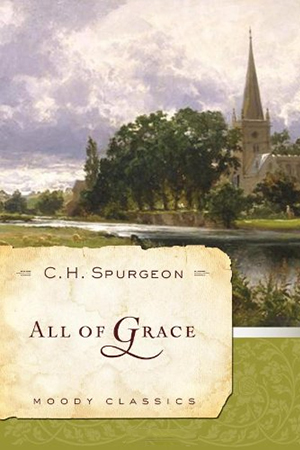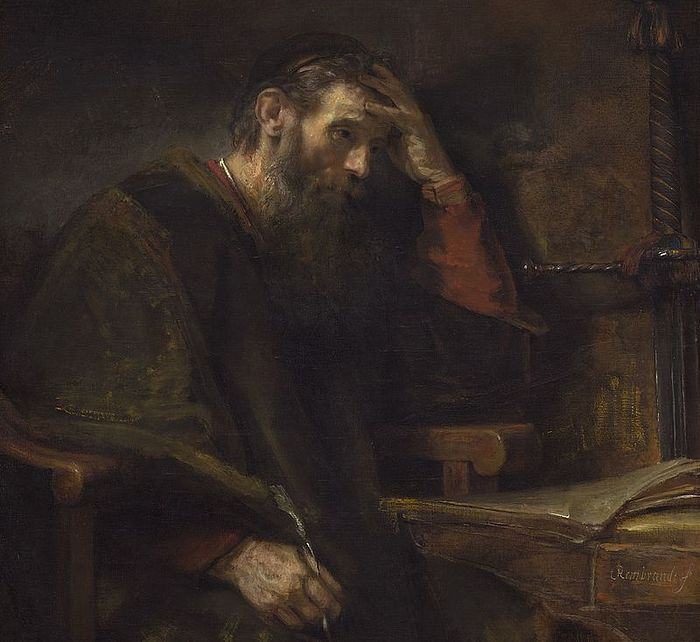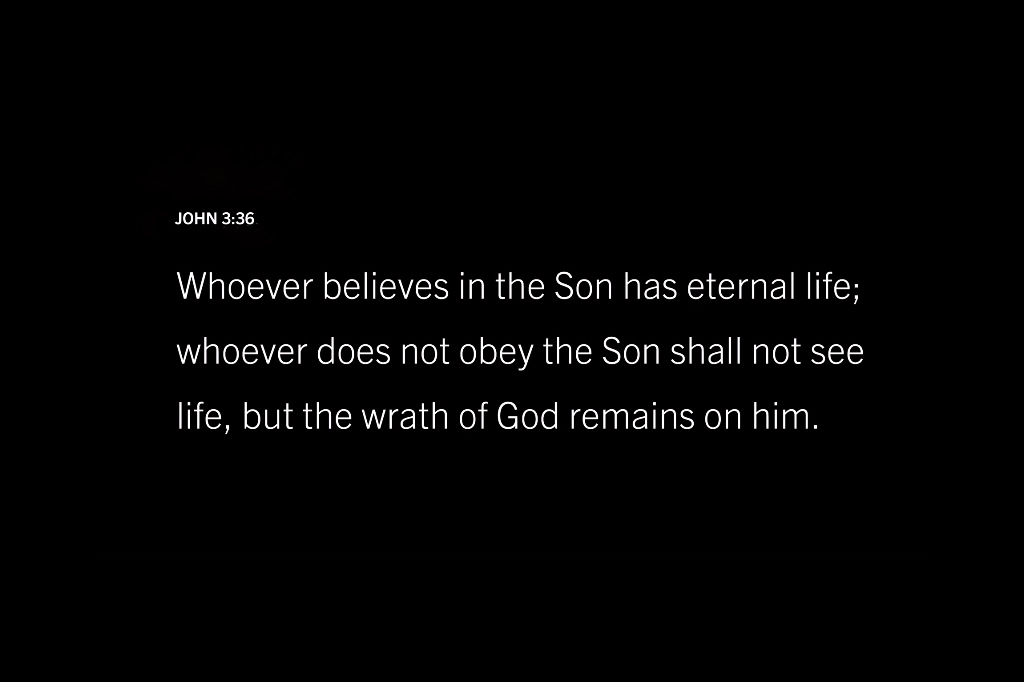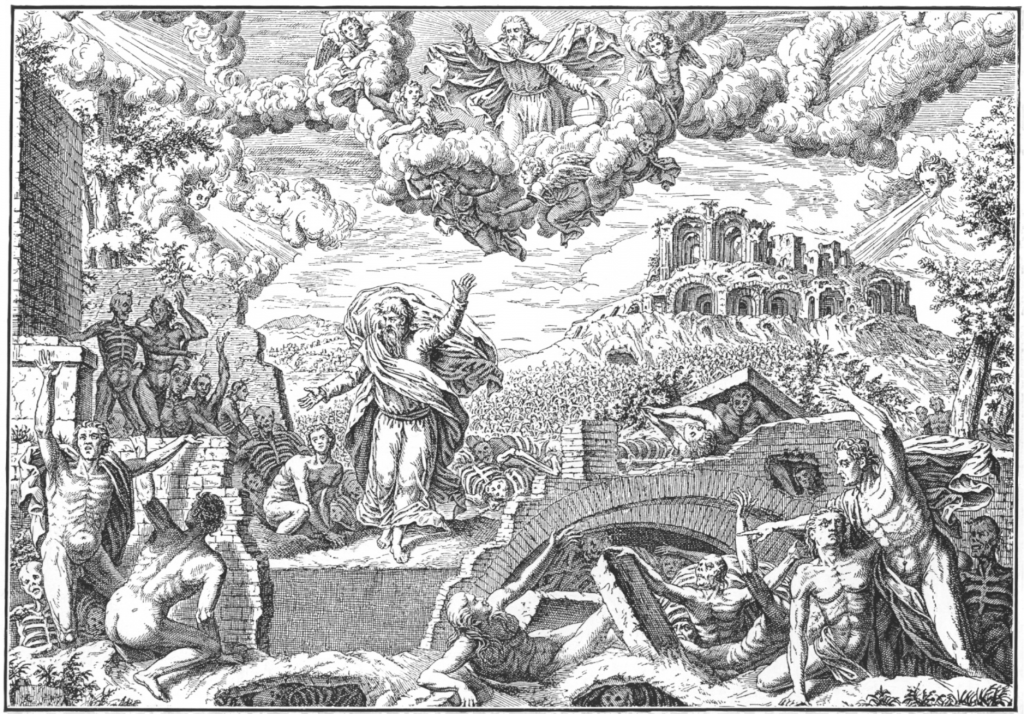In “All of Grace,” Charles Haddon Spurgeon, the renowned 19th-century Baptist preacher, offers a timeless exploration into the heart of Christian theology: the doctrine of grace. Not merely a theoretical exposition for academic theologians, this book aims to reach the ordinary person, the doubting soul, and the skeptical mind. It offers not just theological insight, but also spiritual nourishment and existential hope. Its pages unfold as a grand narrative that tells the story of God’s unmerited favor towards humanity—His grace—and its implications for faith, repentance, and eternal life.
Introduction
Spurgeon opens this book with a dual aim. First, he seeks to explicate the doctrine of grace in a way that is accessible, relatable, and deeply rooted in Scripture. Second, he wishes to guide the reader toward a personal experience of that grace. The heart of his message is simple yet profound: Salvation is a free gift from God, extended to all, regardless of their moral, social, or spiritual status. It’s a gift that can be accepted or rejected, but one that requires no prerequisites other than a sincere and humble heart.
As one of the most influential Christian preachers in history, Spurgeon was deeply concerned with the tendency in his time (and arguably in ours) to misconstrue grace as something to be earned or purchased. His message was radical in its time and remains so today: that all human attempts to earn God’s favor are futile. Salvation cannot be obtained through good deeds, moral uprightness, or religious rituals. It is a gift of God, freely given and freely received.
In “All of Grace,” Spurgeon sets out to dispel misunderstandings, counter legalism, and offer a clear path to understanding what it means to be saved by grace through faith. The book is a sequence of carefully crafted chapters that consider the different facets of grace. Starting from its general conception and delving into its specific applications—such as the role of faith, the importance of repentance, and the assurance of salvation—Spurgeon makes a compelling case for the transformative power of divine grace. Each chapter serves as a spiritual waypoint, guiding the reader closer to the heart of God.
This work is not merely theological; it is deeply pastoral. It is as if Spurgeon is extending his pulpit beyond the walls of the Metropolitan Tabernacle in London, reaching out to each reader individually. The tone is conversational but earnest, akin to a heart-to-heart talk between a wise pastor and a curious, perhaps troubled, parishioner. Spurgeon addresses the questions, fears, and doubts that often plague those who grapple with the issues of sin, salvation, and eternal destiny. He does so with the clarity, empathy, and wisdom of someone who himself has experienced the transforming power of God’s grace.
The book also serves as a guide for those who are either on the fence about Christianity or have perhaps backslidden in their faith. It’s a clarion call to return to the simplicity and purity of the Gospel message. For those who are already believers, it offers deep theological insights that fortify faith and provoke thoughtful reflection. It reaffirms the core belief that at the heart of Christianity is a God of love who offers grace abundantly and unconditionally.
So, as you embark on this spiritual journey through the pages of “All of Grace,” prepare for both an intellectual and emotional odyssey. This isn’t just a book; it’s an invitation—an invitation to examine your beliefs, confront your fears, and ultimately, to experience the boundless grace of God. Whether you are a skeptic looking for answers, a believer seeking to deepen your understanding, or a seeker on the threshold of faith, this book has something for you. By its conclusion, you are likely to find that you’ve not merely gained information but have encountered grace itself—an encounter that could well change your life for eternity.
Part One
Charles Spurgeon’s classic work, “All of Grace,” begins with a chapter that serves as a compelling invitation into the world of Christian faith, setting the foundational tone for the entire book. In this opening chapter, Spurgeon aims to reach those who feel distant from God, estranged by their own failures and imperfections, or intimidated by the complexities of religious doctrine. He wastes no time in getting to the heart of the Christian message: grace.
The section can be seen as an elaborate tapestry, woven with threads of theology, personal invitation, and profound empathy. Spurgeon acknowledges that many people view God as a harsh judge, keeping score of human shortcomings. But he counters this image with the biblical understanding of God as a loving, compassionate Father who offers salvation freely through His grace. He argues that grace is not something that can be earned; it’s a free gift from God. It is, in essence, unmerited favor, offered to all who would receive it.
Spurgeon crafts his words to be as inclusive as possible. He wants the reader to understand that grace is available to everyone, not just a select few who have attained some level of spiritual or moral excellence. In doing so, he breaks down complex theological constructs into simple, relatable terms. The point is clear: if you think you’re unworthy of God’s love, then you’re precisely the person God wants to extend His grace to.
The chapter serves as a rebuttal to the notion that we can earn our way into heaven through good deeds or moral living. Spurgeon points out the futility of such efforts. Even if one were to live a relatively righteous life, it would still fall short of God’s perfect standard. Thus, the only pathway to salvation and a reconciled relationship with God is through accepting His grace, which was made possible through the sacrifice of Jesus Christ on the cross. God’s offer is simple and straightforward; it’s humans who often make it complicated. Therefore, he encourages the reader to come with a humble, open heart and to receive the gift that God offers freely.
Spurgeon achieves a rare balance between theological depth and accessible simplicity. He invites the reader into a relationship with God that is both deeply spiritual and intensely practical. He reframes our understanding of God from a stern taskmaster to a loving Father, eager to extend His grace to all, regardless of their past or present circumstances.
“All of Grace” serves as both an invitation and a foundation. It invites the reader to step into a relationship with God based entirely on His grace, not on human merit. And it lays the theological groundwork for the rest of the book, where Spurgeon explores the many facets of this grace that is so central to the Christian faith. It’s a chapter designed not just to inform, but to transform, steering the reader away from legalism and moralism, and directing them toward the open arms of a gracious God.
Part Two
“All of Grace” deepens the conversation initiated in the opening chapter, moving from the broad concept of grace to the specifics of faith. Spurgeon is acutely aware that the notion of grace alone, without human merit, is not just theologically complex but also emotionally charged. Many people struggle with the idea that something so monumental as eternal salvation could be given freely, without conditions. Spurgeon addresses this by elaborating on the critical role of faith in the process of receiving God’s grace.
Spurgeon begins the chapter by reiterating the urgency of the subject matter. He reminds the reader that the stakes are incredibly high: we are talking about eternal life or eternal death. Yet, the crux of his message is reassuring. Salvation, he insists, comes by faith, and faith is not a work; it is not something we do but rather something we receive.
Spurgeon goes on to deconstruct misunderstandings about faith. Faith is not, he explains, a complicated theological concept that requires intellectual gymnastics to understand. Neither is it a quality that only a select few can muster. Faith is simple trust in the promises of God and the work of Jesus Christ. Spurgeon argues that just as a drowning man would grasp a lifebuoy thrown toward him, so too does faith grasp the salvation offered by God. The key, he points out, is not the strength of one’s grip but the effectiveness of the lifebuoy itself. In the same way, the efficacy of faith lies not in our ability to believe strongly but in the object of our faith: Jesus Christ.
Throughout the chapter, Spurgeon employs vivid metaphors and analogies to make his point. He likens faith to the open hand that receives a gift or the open mouth that consumes nourishment. Faith, he says, is as natural and essential as breathing, yet people often complicate it by conflating it with works or making it a pre-condition for God’s grace.
Spurgeon also directly addresses the skeptic and the self-doubting individual. To those who say they cannot muster faith, Spurgeon posits that the very recognition of one’s inability is the beginning of faith. The realization that one cannot save oneself and needs a Savior is the first step in receiving grace through faith. He assures readers that faith is not an enormous task; it is not scaling the heights but merely looking to Jesus, the author and finisher of faith. Moreover, Spurgeon reiterates that faith and grace are inextricably linked. Faith is the mechanism by which we receive the grace that God has freely given. It is both the simplest and the most profound act, stripping away human pretensions of merit and acknowledging total dependence on God for salvation. It is a humble act, but it leads to the unimaginable glory of eternal life.
“All of Grace” serves as a comprehensive treatise on the nature and role of faith in the Christian doctrine of salvation. It removes the barriers and misunderstandings that often make faith seem complicated or elusive, presenting it instead as a simple yet profound act of trust in the promises of God and the redemptive work of Jesus Christ. Spurgeon guides the reader from the abyss of human inadequacy to the pinnacle of divine grace, making it clear that while the meaning of faith may be a mystery, it is not an impossibility. It’s an invitation to rest in the assurance that salvation is, indeed, all of grace.
Part Three
Charles Spurgeon continues to build on the themes of grace and faith, delving into the transformative power of repentance. While the initial sections focus on the simplicity and accessibility of God’s grace, this section examines the role of repentance as a pivotal moment that bridges the human soul with divine grace. Spurgeon argues that repentance is not a meritorious act that earns God’s favor but is itself a grace-infused experience leading to a transformed life.
Spurgeon opens the section by acknowledging a common misconception: that repentance is a sorrowful, almost punishing act, rooted in guilt and shame. He reframes it as not merely a feeling but an action—a turning away from sin and a turning toward God. It’s a profound change of mind, a reorientation of the soul, catalyzed and sustained by God’s grace. Repentance is not merely feeling bad about one’s sins, but decisively moving away from them and toward God. He emphasizes that repentance is not an isolated event but a journey, an ongoing process that continues throughout the Christian life. Yet, the genesis of repentance often comes in a moment of deep conviction, where the sinner realizes their separation from God and the destructiveness of their ways. This conviction, Spurgeon clarifies, is not human-generated; it is a work of the Holy Spirit who convicts of sin in the life of a believer.
The section also addresses those who might feel they’re too sinful to repent or who fear their repentance is insincere. Spurgeon reassures them that the very desire to repent is evidence of God’s grace working in their hearts. One cannot even wish to repent without the prompting of the Spirit, he argues. Therefore, any inclination toward repentance should be seen as an invitation from God to come closer, to enter into a life-transforming relationship with Him.
One of the most poignant aspects of this section is how Spurgeon connects repentance to faith. He argues that the two are like two sides of the same coin; you cannot have faith without repentance and vice versa. To believe in Jesus as the Savior implicitly requires turning away from one’s sins. Repentance and faith are not sequential but simultaneous experiences that occur in the heart touched by grace. Repentance, then, is not merely negative (turning away from sin) but also positive (turning toward God in faith).
As Spurgeon winds up this section, he reiterates that repentance is not something to be dreaded but to be desired. It’s not a one-time act but a perpetual orientation of the soul toward God. It’s not a human work but a divine gift, infused with grace from start to finish. Spurgeon writes of a rich, nuanced understanding of repentance. He dispels myths, addresses fears, and invites the reader into a fuller, grace-filled experience of turning from sin and turning to God. He continues his overarching theme that every aspect of salvation, including the repentance that often confuses or scares people, is entirely a work of God’s overwhelming grace. Thus, even repentance, often misunderstood as a work we perform, becomes yet another manifestation of God’s grace in the believer’s life.
Conclusion
The concluding narrative of “All of Grace,” covers a range of insights from illuminating the nature of grace to exploring the complexities and simplicities of faith and repentance. Spurgeon has offered a theological and spiritual journey designed to bring the reader into a deep relationship with God. Furthermore, Spurgeon’s conclusion serves as a spiritual crescendo, pulling together all the themes discussed into a harmonious and poignant call to meet him in heaven. He reiterates the central point that salvation is not earned, bought, or achieved through human merit, but is a free gift from God that anyone can receive through faith and repentance. This gift is offered universally, transcending barriers of class, race, and social standing, and it provides not only eternal life but a present reality of peace, hope, and transformation.
As he wraps up the work, Spurgeon addresses the skeptic, the seeker, and the believer alike. To the skeptic, he offers the reasonable argument that the weight of eternity should at least warrant a sincere investigation into the claims of grace. To the seeker, he extends a heartfelt invitation to respond to the God who is already reaching out in love and mercy. And to the believer, he provides encouragement and admonition to continue in the journey of faith, abiding in grace while also extending it to others.
Spurgeon also tackles some final concerns that a reader might have: What if I don’t feel worthy? What if my faith is weak? What if I falter and fall? His answer is consistent with the message that runs through the entire book—look to Jesus, the author, and finisher of our faith. God’s grace is sufficient for all our weaknesses, doubts, and fears.
Moreover, he stresses the immediacy of the decision. The grace of God is available now, at this very moment. It is not a distant theological concept but a present reality that demands a response. And this grace is transformative; it changes lives, breaks chains of sin, and liberates the soul.
In a final appeal, Spurgeon calls upon the reader to take that step of faith, to reach out and accept the freely offered grace of God. He likens rejecting this gift to turning away from a feast set before a starving man. The tragedy of rejecting grace is eternal, but the joy of accepting it is also everlasting.
Spurgeon’s “All of Grace” thus comes full circle, ending as it began—with a powerful, compassionate, and urgent invitation to enter into the life of grace. He leaves the reader not with an ending but a beginning, the beginning of a life lived in the rich, transforming grace of God. Through a blend of sound theology, practical wisdom, and heartfelt narrative, Spurgeon offers not just a book but a spiritual experience that has the potential to change lives for eternity.
So as the last words are read, the overarching message reverberates in the heart: Come, taste, and see that the Lord is good. All is indeed of grace, and that grace is sufficient for you, for me, and for all who will believe.




























